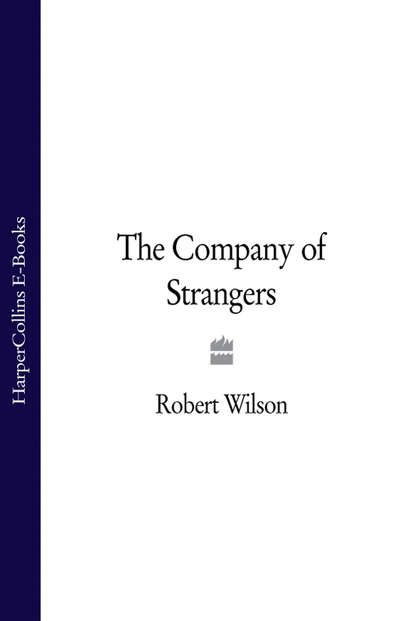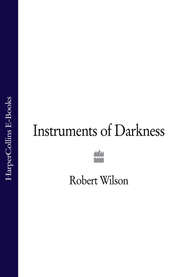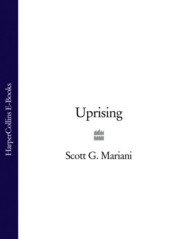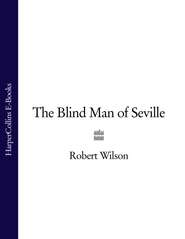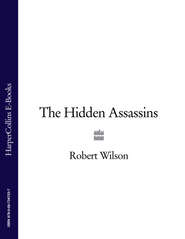По всем вопросам обращайтесь на: info@litportal.ru
(©) 2003-2024.
✖
The Company of Strangers
Автор
Год написания книги
2018
Настройки чтения
Размер шрифта
Высота строк
Поля
‘It comes from uranium.’
‘Aha!’ said Weber, sitting up. ‘Joachimstahl.’
‘What about it?’
‘Biggest uranium mine in Europe. And it’s in Czechoslo-vakia…which is ours,’ said Weber, cuddling the schnapps bottle.
‘There’s an even bigger one in the Belgian Congo.’
‘Aha! Which is ours, too, because…’
‘Yes, Weber, we know, but it’s still a very complicated chemical process to get the fissionable material out of the uranium. The stuff they’d found was called U 235 but they could only get traces and it decayed almost instantly. Then somebody called Weizsäcker began to think about what happened to all the excess neutrons released by the fission of U 235, some would be captured by U 238, which would then become U 239, which would then decay into a new element which he called Ekarhenium.’
‘Voss.’
‘Yes?’
‘You’re boring the shit out of me. Drink some more of this and try saying it all backwards. It might, you know, make more sense.’
‘I told you it was complicated,’ said Voss. ‘Anyway, they’ve found a way to make the “fissionable material” comparatively easily in an atomic pile, which uses graphite and some stuff called heavy water, which we used to be able to get from the Norsk Hydro plant in Norway – until the British sabotaged it.’
‘I remember something about that,’ said Weber. ‘So the British know we’re building this bomb.’
‘They know we have the science – it’s in all these magazines you’re throwing around my room – but do we have the capability? It’s a huge industrial undertaking, building an atomic pile is just the first step.’
‘How much of this Ekarhe—shit do you need to make a bomb?’
‘A kilo, maybe two.’
‘That’s not very much…to blow up an entire city.’
‘Blow up isn’t really the word, Weber,’ said Voss. ‘Vaporize is more like it.’
‘Give me that schnapps.’
‘It’s going to take years to build this thing.’
‘We’ll be rolling in sherbet by then.’
Weber finished the bottle and went to bed. Voss stayed up and read his mother’s part of the letter, which contained detailed descriptions of social occasions and was strangely comforting. His father, General Heinrich Voss, sitting out the war in enforced retirement, having made the mistake of voicing his opinions about the Commissar Order – where any Jews or partisans encountered in the Russian campaign were to be handed over to the SS for ‘treatment’ – would add an irascible note at the bottom and a chess move. This time his move was followed by the word ‘check’ and the line: ‘You don’t know it yet but I’ve got you on the run.’ Voss shook his head. He didn’t even have to think. He dragged the chair with the chessboard to him, made his father’s move and then his own, which he scribbled on to a note and put in an envelope to post in the morning.
At 10.00 a.m. 19th November the first conference of the day got underway with a discussion over an enlarged map of Stalingrad and its immediate vicinity. No attempt had been made to alter the map to show the true state of the city. All it indicated was neatly packaged sectors, red for Russian, grey for German, like peacetime postal districts.
At 10.30 a.m. the teleprinters shunted into life and the phones started ringing. General Zeitzler was called from the room, to return minutes later with the announcement that a Russian offensive had started at 05.20 a.m. He showed how a Russian tank force had broken through the Romanian sectors and was now heading south-east towards the river Don, and that activity had broken out along the whole front to hold German forces in their positions. A panzer corps had been sent to engage the advancing Russians. Everything was in hand. Voss made the necessary alterations to the map. They went back to the Stalingrad situation leaving Zeitzler fingering the small flag of the panzer corps and rasping a hand over his sandpaper chin.
By lunchtime the next day news reached Rastenburg of a second large Russian offensive starting south of Stalingrad, with such huge numbers of tanks and infantry it was inconceivable that they’d had no intelligence.
The Stalingrad map was rolled and stacked.
It was clear that full encirclement of the Sixth Army was the Russian intention. Voss felt sick and empty as Zeitzler dragged him and his inexhaustible memory around wherever he went. Voss stood over Zeitzler’s telephone conversations to the Führer, vomiting information which the Army Chief of Staff would use in a desperate bid to impress on Hitler the dire circumstances and the need to allow the Sixth Army to retreat. The Führer paced the great hall of the Berghof swearing at Slavs and hammering tables into submission.
Sunday, 22nd November was Totensonntag, the day of remembrance for the dead, and after a subdued service they heard that the two Russian forces were about to meet and that encirclement was a foregone conclusion. The Führer left the Berghof for Leipzig to fly on to Rastenburg.
As Voss began the monumental task of drafting orders for the phased withdrawal of the Sixth Army the Führer stopped his train en route to Leipzig and called Zeitzler expressly to forbid any retreat.
Zeitzler sent Voss back to his room and, to take his mind off the disaster, Voss pored over the chess game. In doing so he suddenly saw his error, or rather, he perceived his father’s strength of position. He searched for the letter he’d scribbled days ago and found that one of the orderlies had posted it for him. He took out another sheet of paper and wrote one word on it. Resigned.
The Führer arrived in Rastenburg on 23rd November and after the initial shock of the Russian success nerves steadied. In the days and weeks that followed the disaster, Voss witnessed the transformation of the Rastenburg HQ. It ceased to be a military installation and became instead the stuff of legend. Men would arrive, tear off their cloaks and capes and perform miracles in front of their glassyeyed leader. Vast and powerfully armoured divisions, miraculously supplied, would appear and drive up from the south to relieve the stricken army. When, as in some bizarre game of three-card monte, this force failed to materialize, another maestro would whisk away a silken sheet and show fleets of aircraft supplying and resupplying until, brought back up to full strength, the Sixth Army would take Stalingrad, break the Russian encirclement and assume their position in Germanic legend. Everything became possible. Rastenburg became a circus where the greatest illusionists of the time came to perform.
At this stage, in the weeks leading up to Christmas, a sickness settled itself in Voss’s gut. The news of men dying of starvation and cold, and the back to back shows from prestidigitators from all the forces, sealed off his stomach. His blue eyes sunk back into his head, his uniform hung off his ribs. He sipped water or schnapps and smoked upwards of fifty cigarettes a day.
In mid December an attempt was made to relieve the army from the south. The Russians stalled the attack and proceeded to smash the Italian army and decimate the air transport fleet. Still the Führer refused permission for the Sixth Army to retreat; his eyes seared the situation maps demanding deliverance.
Voss listened, first to the quality of the silence in the situation conferences, which were black, crushing and hideous, and then to the boot-licking apostles of the High Command who would pledge the impossible for one look of love from the Führer. He asked for a transfer to the front. Zeitzler refused him and, perhaps after seeing the bones appearing through the skin of Voss’s face, went on Stalingrad rations himself. They became known as ‘the cadavers’.
There had been no improvement in the German Sixth Army’s position by the beginning of January 1943 and Voss, pale with his facial skin drawn tightly over his skull, found himself on his bed in his room smoking and sipping some of Weber’s violent schnapps. He had two letters in front of him on the seat of a chair where he used to keep the chess games he played with his father. There’d been no chess since his resignation back in November. The two letters, both short, one from his father and the other from his brother, had presented him with a problem whose only solution involved calling on SS Colonel Bruno Weiss.
The Kessel, Stalingrad
1st January 1943
Dear Karl,
You know better than anyone our situation out here. I can only thank you for trying to send us the sausages and ham for Christmas but it was a lost cause. They probably never got off the airstrip. Real meat has not been seen for weeks. Krebs and Stahlschuss came up with some shreds of dried mule so that we managed to have some kind of celebration for the New Year. It wasn’t as good as Christmas which, whatever happens to me now, will have been one of the greatest military experiences of my short career. It’s difficult to believe in this unbearable environment that men can find (I’ve thought about this a long time to try to find the right word) such sweetness in themselves. They gave each other things which were their last and most important possessions and if they had nothing they made something from bits of metal or carved bone retrieved from the steppe. It was remarkable to find the human spirit so undaunted. Glaser has tried to have me taken to the hospital again (I’m yellow, and the legs are still badly swollen so that I can’t move about) but I’ve refused. I never want to see that vision of hell again. I won’t tell you. You must have heard by now.
I listen to the men and there’s been a change in their mood now. Before the New Year they would say that the Führer will rescue them. Now, if they still think that, they don’t say it. We are resigned to our fate and you might be surprised to hear that we are cheerful because, and I know this will sound absurd in the circumstances, we are free.
I think of you and am always your brother,
Julius
Karl read this letter over and over. His brother had never been one for the examination of the soul and his discovery of the nobility of man in these desperate circumstances was a revelation. Karl was sickened by the thought of playing on Weiss’s side of the fence to get what he wanted.
Berlin
2nd January 1943
Dear Karl,
We have had another letter from Julius. His are not censored like some of the junior officers’. Your mother cannot read them even though he makes light of the terrible things around him. He seems so inured to the desperate circumstances that he doesn’t see that what he considers normal is, to people in Berlin, unimaginable horror. I do not ask this of you lightly. I only ask this of you because I saw some of this pointlessness in the Great War. It goes against every military instinct I have but I would like you to do everything you can to get your brother out of that place. I know it is forbidden. I know it is impossible but I must ask this of you on behalf of your mother and for myself.
Your father
Voss lay back on the bed, his boots up on the metal bar at his feet, the two letters on his chest resting against his protruding ribs. He lit another cigarette from the one he’d been smoking. He knew that if anything happened to Julius it could potentially destroy his family. Since his father had been ‘retired’, he’d invested all his hopes and aspirations in his first-born son. He thought it possible that his father might be able to bear Julius’s death in glorious victory but not, definitely not, in miserable defeat.
Voss swung his feet off the bed and slapped a sheet of paper on to the chair. He would have preferred to ask this favour of General Zeitzler but knew that he could not possibly grant him the request. SS Colonel Weiss was the only man with whom he had any leverage, if that was a word he could use when it came to the SS.
He began writing in his horrible, cramped scrawl, handwriting that had developed because his brain always worked faster than his fingers. He balled his first attempt and tried again. He screwed that one up, too. He didn’t know what he wanted for his brother. He wanted to save him, of course, but on what terms? Julius, his state of mind heightened to rare acuity, would not be easily duped.





